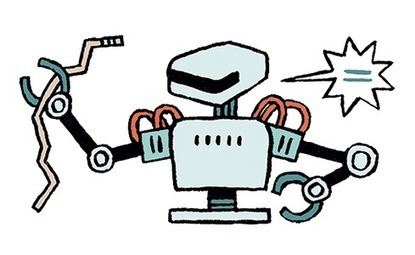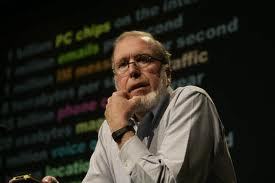Économiste. Auteur de La Troisième Révolution industrielle (2012) et de bien d’autres essais remarqués, il est le président de la Foundation on Economic Trends qui mène depuis la fin des années 1970 un travail de prospective sur les questions économiques, sociales et environnementales. Il vient de publier La Nouvelle Société du coût marginal zéro aux éditions Les liens qui libèrent.
Dans votre dernier ouvrage, vous poursuivez votre réflexion sur ce que vous appeliez en 1995 « la fin du travail » en annonçant une troisième révolution industrielle. De quoi s’agit-il ?
La troisième révolution industrielle correspond à la disparition progressive du capitalisme au profit d’un nouveau système économique, fondé sur le partage et les communautés collaboratives. Cette transition, qui se déroule aujourd’hui sous nos yeux, est la conséquence du développement des nouvelles technologies, et notamment de l’imprimante 3D, qui permettent de réduire considérablement le coût marginal, c’est-à-dire le coût de production d’une unité supplémentaire. Grâce à l’« Internet des objets », l’humanité entière sera bientôt connectée. Sous réserve que la protection des données personnelles et le principe de neutralité du Web soient garantis, chacun pourra, sur son smartphone, tirer profit des Big Data [les données numériques à la croissance exponentielle] et devenir un véritable prosumer, mi-producteur, mi-consommateur.
Via Aurélien BADET



 Your new post is loading...
Your new post is loading...









Le 1 hebdo consacre son numéro de la semaine à la question "Comment réinventer son travail ?". Retrouvez notamment un article d'Anne-Sophie Novel @Anne-Sophie
A lire !